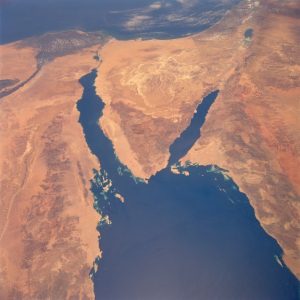 Patriarch Abraham Avinu was a nomad.
Patriarch Abraham Avinu was a nomad.
His model of life, nomadism, dates back to long before cities were established.
Faith in monotheism which claims to be Abraham Avinu, declares to the world without ambivalence this reference as its origin, thus suggesting that the nomadic way of life is that of proximity with the Divine.
By this this Faith also declares that the human being of the city is spiritually corruptible, because he has lost his essentially nomadic humanity, physically or spiritually.
For the nomad, all existence is transhumance, and is only a passage from one stage to another. Nothing belongs to us, except the elevation of our soul, through the love we share during our existential journey.
On the other hand, the Tower of Babel is the embodiment of the desire to leave its mark, the opposite of permanent transhumance.
Creating new languages, as the biblical episode of Babel relates, is also based on distinctions and developing new forms, this to mark a territory, just like building walls and monuments.
For nomadic societies, this desire for glory is a vanity, an error of judgment which makes one forget, and take the risk of erasing, the essential: the human identity of the free being, to which the person must necessarily return , in order to be able to reconcile with its natural external environment, as well as with its internal psychological environment.
The Tower of Babel is the standard attempt at social experimentation, based on an ideological project, or on an idea of the world, which claims to be dominant over other ideas.
The Tower is the one, among the ideas, which claims to be able to frame all the others, and to prioritize them according to their proximity to the driving idea.
The desire to be defined, or to be attached, according to a geographical or historical cartography, to a particular landscape more than another, is one of these ideas foreign to the spirit of nomadism.
The holy places of pilgrimage are landmarks in space and time for the nomads, but above all they constitute valid reasons for continuing to be on the move.
Until the end of the Judges’ period, the Bible tells us that the Hebrews lived mainly as nomads. And until today the patriarchs of the Jewish people personify the classic character of the nomad, we imagine them living in tribal fashion in tents, and grazing their herds in the wild.
The prophets of Israel did not live in the city. They were typically shepherds, or lonely and itinerant characters living in the desert.
These prophets openly criticized the metropolitan system, accused it of corruption, injustice, lack of spiritual sincerity, and called it to repentance.
The narration of the confrontation of the prophets against the city, begins in the story of the conflict between Abraham Avinu and the various heirs of the philosophy of the Tower of Babel, Nimrod, Abimelekh, Pharaoh, and the kings of the battle of Sodom and Gommorhe. All were city dwellers.
Today this clash persists in other forms, but its content is essentially the same.
We can consider that the nomadic indigenous populations are the reflection of Abraham Avinu in our time, and that the big cities with their growing expansion are the new Towers of Babel.
Will the Voice that speaks to us through nomadic cultures be heard this time?
Will we be able to recognize that this is what we come from, and that it is from this source that we have learned to recognize the truth that unites us?
Or how would the world go on?
Without the nomads, to remind them that borders are illusions, the inhabitants of countries and cities risk believing in them, and accepting nationalist nonsense that the functioning of the contemporary world contradicts.
However, borders are only scars of violence, left by the history of conflicts between men who did not get along.
Eliminating the boundaries, in every possible sense of the word, between human beings, is the conscious intention and goal of those who love to see love and justice triumph, the true heirs of monotheism claiming to be Abraham.
Their cross-border spiritual nomadism is also the path to prosperity, through exchange and dialogue, the only real road leading to Peace.
